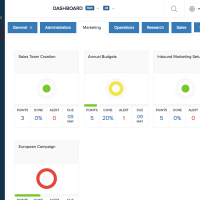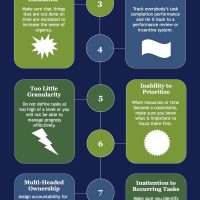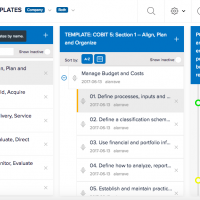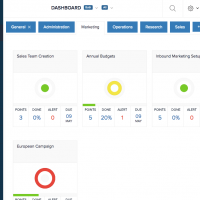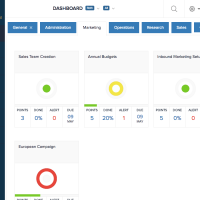The Harvard Business Review recently released an article outlining how to identify high-potential employees.
Insights
The worldwide cyberattacks in the news lately have worried businesses and individuals alike.
The ransomware attacks Petya and WannaCry have affected commercial businesses, governmental entities, and individuals by the thousands. But while the media focuses on these external attacks, internal network security threats remain one of the most common problems in security management.
At CommandHound, we have been working with our power users to record and share their top tips. Check out their top 10 tips to drive accountability in the workplace here. Now, here is the list of their top 10 warnings or pitfalls to avoid while using a task management software.
Have you tried to implement a comprehensive information security framework like ISO 27001 or COBIT but nobody is doing what they are supposed to do? A lack of accountability in the workplace is often the main reason.
Every manager has faced the disappointment of assigning a task to a team member and finding out that the task was ignored or slipped through the cracks.
Expanding the scope of a project is not a bad thing when properly managed. in fact, changing requirements, constraints, needs, context, or priorities in a project is more norm than rarity.
But a problem arises when change creeps into a project unnoticed. When project sponsors, project managers and team members realize that they are working on a bigger and more ambitious project than originally planned, and that they have begun to miss deadlines consistently and to exceed budgets, it’s probably too late.
Have you ever found yourself in meetings where the same issues and action items seem to get discussed over and over?
If the mechanics of documenting action items, defining a due date, and assigning it to somebody are in place then, why don’t things get done? Why do we need to talk about them again at subsequent meetings? There are actually some very simple steps you can take to make sure that your meetings stay on track.
When employees join a new company or new team, they often face a difficult challenge. How to be accepted and begin contributing quickly?
When business owners and corporate leaders get together, it doesn’t take long for them to bring out the war stories of the difficulty of managing and retaining millennial employees.
We’ve all heard the complaints — They feel entitled to promotion regardless of the quality of their work. They have no loyalty. Their work ethic is sub par. Blah. Blah. Blah.
Have you ever taken a short break at work to read an article online and accidentally fallen into an internet rabbit hole, only to emerge an hour later, praying that no one noticed how disconnected you were from your work?

